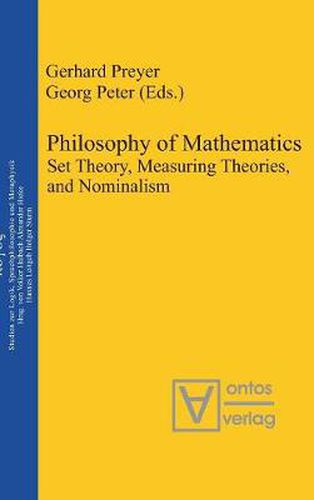Readings Newsletter
Become a Readings Member to make your shopping experience even easier.
Sign in or sign up for free!
You’re not far away from qualifying for FREE standard shipping within Australia
You’ve qualified for FREE standard shipping within Australia
The cart is loading…






One main interest of philosophy is to become clear about the assumptions, premisses and inconsistencies of our thoughts and theories. And even for a formal language like mathematics it is controversial if consistency is acheivable or necessary like the articles in the firt part of the publication show. Also the role of formal derivations, the role of the concept of apriority, and the intuitions of mathematical principles and properties need to be discussed. The second part is a contribution on nominalistic and platonistic views in mathematics, like the indispensability argument of W. v. O. Quine H. Putnam and the makes no difference argument of A. Baker. Not only in retrospect, the third part shows the problems of Mill, Frege’s and the unity of mathematics and Descartes’s contradictional conception of mathematical essences. Together, these articles give us a hint into the relationship between mathematics and world, that is, one of the central problems in philosophy of mathematics and philosophy of science.
$9.00 standard shipping within Australia
FREE standard shipping within Australia for orders over $100.00
Express & International shipping calculated at checkout
One main interest of philosophy is to become clear about the assumptions, premisses and inconsistencies of our thoughts and theories. And even for a formal language like mathematics it is controversial if consistency is acheivable or necessary like the articles in the firt part of the publication show. Also the role of formal derivations, the role of the concept of apriority, and the intuitions of mathematical principles and properties need to be discussed. The second part is a contribution on nominalistic and platonistic views in mathematics, like the indispensability argument of W. v. O. Quine H. Putnam and the makes no difference argument of A. Baker. Not only in retrospect, the third part shows the problems of Mill, Frege’s and the unity of mathematics and Descartes’s contradictional conception of mathematical essences. Together, these articles give us a hint into the relationship between mathematics and world, that is, one of the central problems in philosophy of mathematics and philosophy of science.